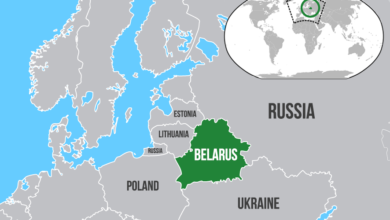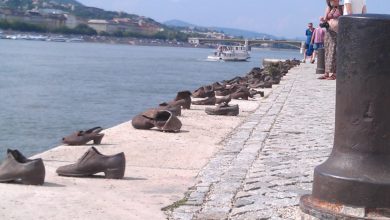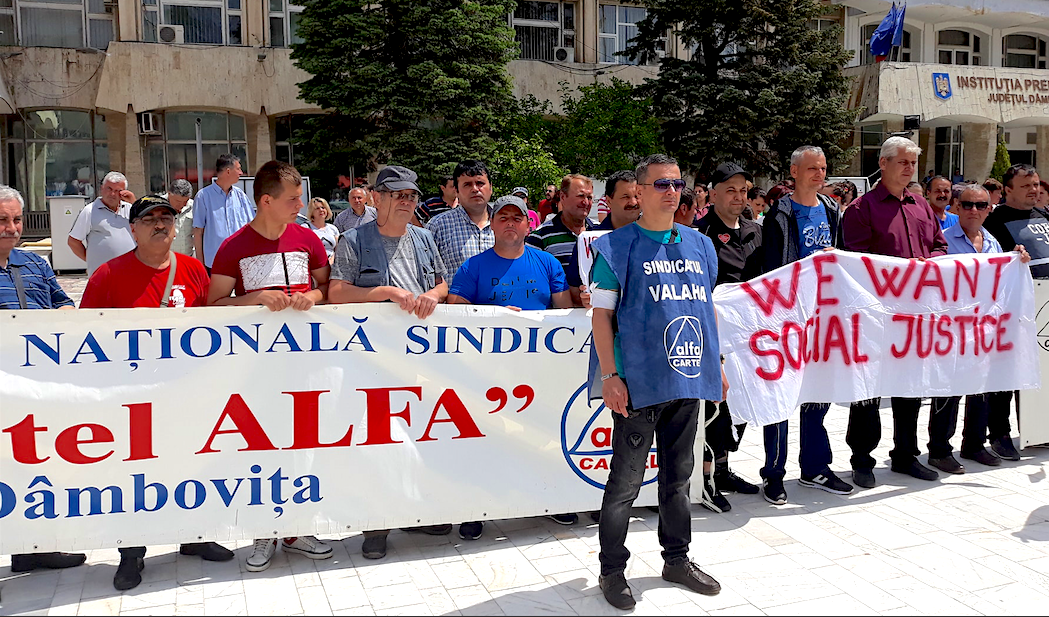Over the past year, but especially in the last few months, anti-Roma legislation and racist activity in Europe has been particularly pronounced. Roma communities have suffered numerous assaults under false pretexts. The fabricated reasoning for these attacks has spread into an international hysteria focusing on alleged instances of child-snatching, with devastating consequences for Roma worldwide.
In August, Hungarian mayor Pal Furjes cut off the public water supply in his town because he did not want it “wasted” on the local Roma community. This went on for several days until the federal government intervened. Most Roma in that area live without electricity, while nearby towns and cities enjoy full modern amenities.
The increasing influence of right-wing political parties and organizations in Europe—among them Ataka in Bulgaria, Golden Dawn in Greece, Jobbik in Hungary and the Workers’ Party of Social Justice in the Czech Republic—facilitates attacks on Roma communities both through law enforcement and through the actions of individual racist civilians.
Just this year, several towns in Slovakia erected giant concrete walls separating Roma communities from the rest of the population. In Greece, racial segregation of children in schools is commonplace. Physical assaults against Roma people are a regular practice in Europe—the rapid increase of neo-Nazi groups has resulted in the injuries and deaths of numerous Roma people, many of them children.
Despite these horrific—and often illegal—actions, law enforcement agencies are far from eager to help Roma communities. In the case of a heinous killing of six Hungarian Roma people—one of them a 5-year-old child—by neo-Nazis, police took more than four years before actively investigating the killing. The state dragged its feet on the prosecution of the killers, despite the horrific nature of the crime and evidence against the murderers.
In the past few months, the preferred treatment of Roma communities by law enforcement across Europe—in both EU and other countries—has been criminalization and intimidation. Communities are being targeted on a daily basis by police and turned upside down with violent “drug and weapons searches.”
This is similar to the way Latino immigrants are treated in the United States. Because many Roma are denied citizenship or legal resident status, they are rarely able to file complaints about abuses perpetrated against them by law enforcement or civilians. In times of economic decline, raids on Roma communities are increased as a method of demonizing the immigrant population to shift blame to a scapegoat from the contradictions of capitalism.
Separation of families
One of the by-products of these raids is the deliberate separation of Roma families. Law enforcement agencies single out families with light-skinned, fair-haired children; confiscate those children; and arrest the families on suspicion of child abduction.
A well-known recent case is that of Maria, a 4-year-old girl adopted by a Greek Roma couple at birth. The community in which Maria lived was raided on a “drugs and weapons” pretext. Her parents stated that they had adopted Maria because her Bulgarian birth mother—who is also Roma— could not afford to take care of the baby and wanted her to have a chance at a better life.
Nonetheless, they were arrested and charged with having abducted the girl. Maria was taken from them and held separately for weeks. During the time Maria was held, Greek officials received calls from over 400 different people claiming Maria to be their daughter or the daughter of someone they knew. Finally, a DNA test confirmed that she was the birth daughter of a Bulgarian Roma woman.
However, instead of apologizing to both Maria’s birth parents and her adoptive family and releasing them, Greek law enforcement decided to charge both couples with child sale and purchase respectively.
The case of Maria is not unique. In the past month, numerous “child abduction” cases have arisen, leading to the separation of Roma families because of racist presumptions based on their children’s appearance. Maria was called a “blonde angel” until she was proven to be Roma. International media has gone berserk with unapologetic bigotry, doing its best to paint the affected families as criminals.
There are two important questions we must ask ourselves: Why is this happening? And, what can we do?
The attacks on Roma communities occur as a planned racist response to economic troubles. In times of economic uncertainty, the risk of the working-class population standing up and demanding better treatment is heightened unless an appropriate scapegoat is found that can be blamed instead of the capitalist system. In Europe, that scapegoated underclass—blamed for crime, unemployment and instability— is the Roma, similar to the targeting of Black and Latino communities in the United States.
When cases like Maria’s gain international publicity, the only solution states have, without forsaking their far-reaching marginalization and intimidation techniques, is to push the criminalization of the affected people even further. In the case of Maria’s family, it was the public knowledge of her proven Roma heritage that caused the state to press further charges against her birth parents and adoptive family.
It is tragic and common knowledge that if Maria’s family was white and middle-class, their adoption of Maria would have been seen as nothing less than heroic and commendable. However, Roma communities do not have that privilege—they have been painted as villains and child-snatchers through centuries of oppression.
As reactionaries openly paint Roma as criminal scum, and liberals “debate” whether Roma are actually criminals or if there is something else wrong with them, as if it it is a real scientific question, the only answer is to take the lead of Roma communities and refuse to stand for racism.
The firm response of solidarity from the community in which Maria’s family lives is exactly what we need to see across the board—an organized fightback movement of all of those falsely painted as society’s devils.





